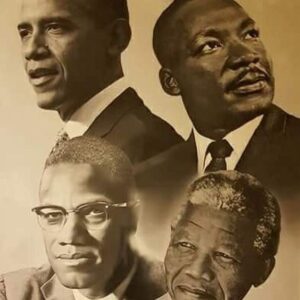Separate but equal….Discrimination…?

Separate but equal
From Wikipedia, the free encyclopedia
“Separate but equal” was a phrase used by attorneys for the NAACP during the Supreme Court litigation of Brown v. Board of Education (1954), to refer to the phrase “equal but separate” used in Plessy v. Ferguson (1896) as a custom of de jure racial segregation enacted into law. The NAACP, led by later Supreme Court Justice Thurgood Marshall, was successful in challenging the constitutionality of Plessy and the Court voted to overturn 60 years of law under Plessy.After the American Civil War (18611865) brought about the end of slavery, Plessy became the de-facto standard throughout the U.S. Southern states, and represented the institionalization of the segregation period. African-Americans and European-Americans would receive the same services (schools, hospitals, water fountains, bathrooms, etc.), but that there would be distinct facilities for each race. In practice, the services and facilities reserved for African-Americans were frequently of lower quality than those reserved for whites; for example, many African-American schools received less public funding per student than nearby white schools.The legitimacy of such laws was upheld by the U.S. Supreme Court in the 1896 case of Plessy v. Ferguson, 163 U.S. 537. The repeal of “separate but equal” laws was a key focus of the civil rights movement of the 1950s and 1960s. In Brown v. Board of Education, 347 U.S. 483 (1954), the Supreme Court outlawed segregated public education facilities for blacks and whites at the state level; the companion case of Bolling v. Sharpe, 347 U.S. 497 outlawed such practices at the Federal level in the District of Columbia.It was also used in apartheid South Africa to claim services for blacks were as good as services for whites.
Discrimination
From Wikipedia, the free encyclopedia
This article is about discrimination in the social science sense. For the act of distinguishing/discriminating between things, see distinction, difference, comparison or differentiation. The word discrimination comes from the Latin “discriminare”, which means to “distinguish between”. To discriminate socially is to make a distinction between people on the basis of class or category without regard to individual merit. Examples of social discrimination include racial, religious, sexual, sexual orientation, disability, ethnic, height-related, and age-related discrimination. Whether a given example of discrimination is positive or negative is a subjective judgment (i.e., in the eye of the beholder). Distinctions between people which are based just on individual merit (such as personal achievement, skill or ability) are generally not considered socially discriminatory. Consequently, prohibitions against such discrimination generally will not prevent a government from acting in a legitimate and justifiable way based upon the merit of an individual person. Social theories such as Egalitarianism claim that social equality should prevail. In some societies, such as the U.S.A., individuals’ civil rights include the right to be free from government-sponsored social discrimination [1]. In contrast, conservative writer and law professor Matthias Storme has claimed that the freedom of discrimination in human societies is a fundamental human right or the basis of all fundamental freedoms and, therefore, the most fundamental freedom. Author Hans-Hermann Hoppe, in an essay[2] about his book Democracy: The God That Failed, asserts that a natural social order is characterized by increased discrimination.
Discrimination and government
Many governments have attempted to reduce social discrimination through civil rights legislation and equal opportunity laws. For example, Article 14 of the European Convention on Human Rights defines the right of individuals to be free from discrimination. Some governments have also institutionalized affirmative action policies (called reverse discrimination by its opponents). Social discrimination in some form by governments is almost universal. For example, government discrimination based on citizenship status is almost always legal. Unemployed citizens may receive welfare benefits funded by taxpayers, while unemployed non-citizens may be denied such benefits. Governments often have the power to forcefully expel non-citizens but cannot expel citizens. Other forms of government discrimination may not be legal yet remain an actuality in practice. Examples of social discrimination by states include: apartheid in South Africa; institutionalized racial segregation in the USA from the Civil War through the 1960s; the “Jewish problem” in Nazi Germany; and reeducation camps in some communist countries.
Racial discrimination
Main article: RacismRacial discrimination differentiates between individuals on the basis of real or perceived racial categories and has been an official government policy in several countries, such as South Africa in the apartheid era.
In the United States, racial profiling of minorities by law enforcement officials has been called racial discrimination [3]. In the UK the inquiry following the murder of Stephen Lawrence accused the police of institutional racism.
all excerpts are From Wikipedia, the free encyclopedia Rev. Earnest Mason

